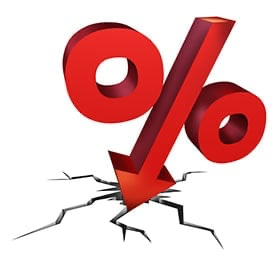Stimulus addicted markets ran into headwinds last week. Fed watchers found some hints about interest-rate tightening in the just-released FOMC’s July meeting minutes. That was all it took to rattle Wall Street.
Stocks have since recovered some of the initial losses, but it looks like history is about to repeat.
The U.S. economy is largely a mirage based on stimulus. Without artificially low interest rates, bond purchases (aka debt monetization), repo market support, and other extraordinary measures the central planners put in place, stock prices would fall.
 There was a stock market correction in the fall of 2018 after which the Fed reversed course on tightening. And when COVID struck in March of 2020, the Fed quickly surrendered – cutting the funds rate all the way back to zero.
There was a stock market correction in the fall of 2018 after which the Fed reversed course on tightening. And when COVID struck in March of 2020, the Fed quickly surrendered – cutting the funds rate all the way back to zero.
Markets are so hopelessly addicted to stimulus that anything short of a commitment to zero interest rates and QE forever could burst the bubble.
What makes the current cycle different this time is headline inflation rising at a record pace.
Rising prices are creating a dilemma for the FOMC. At least that is what officials there would like you to think. The choice is between tightening policy and controlling inflation or crushing leveraged financial markets.
Based upon last week’s FOMC minutes, many pundits now believe tapering could begin before year end – and the Fed Funds rate could begin rising in 2022. They are convinced officials are finally ready to make the difficult choices.
We’ll have to see it to believe it. The Fed’s effort to create inflation has been nothing short of Herculean. Now that they are finally getting somewhere, we doubt they are going to suddenly reverse course.
Our perspective is based upon some simple, unavoidable truths. The federal debt is unpayable. Inflation (devaluing the dollars in which the debt is denominated), rather than outright default, is the only viable option politically.
The question is whether officials will be able to control the inflation beast now that it has been unleashed. Regardless of all the bloviating at FOMC meetings, the whole thing amounts to an experiment in mass psychology.
Officials want inflation, without a disorderly collapse in the value of a dollar. Given that the value of the dollar is based purely upon people’s confidence, the idea is to erode some confidence – just not too much.
This definitely isn’t the sort of thing that can be precisely managed by a room full of Fed bankers and their whiteboards, no matter how high their IQs may be.
Congress isn’t making the Fed’s job easy. Federal borrowing is growing even faster than the extraordinary inflation rates.
In our view, the Fed is just getting started and will pay little more than lip service to controlling prices. Perhaps there will be one or two feeble attempts to raise rates, before stocks begin puking and there is cover once again to pour on more stimulus.
Anybody expecting the Fed to make a serious effort at tightening is in for a surprise.


